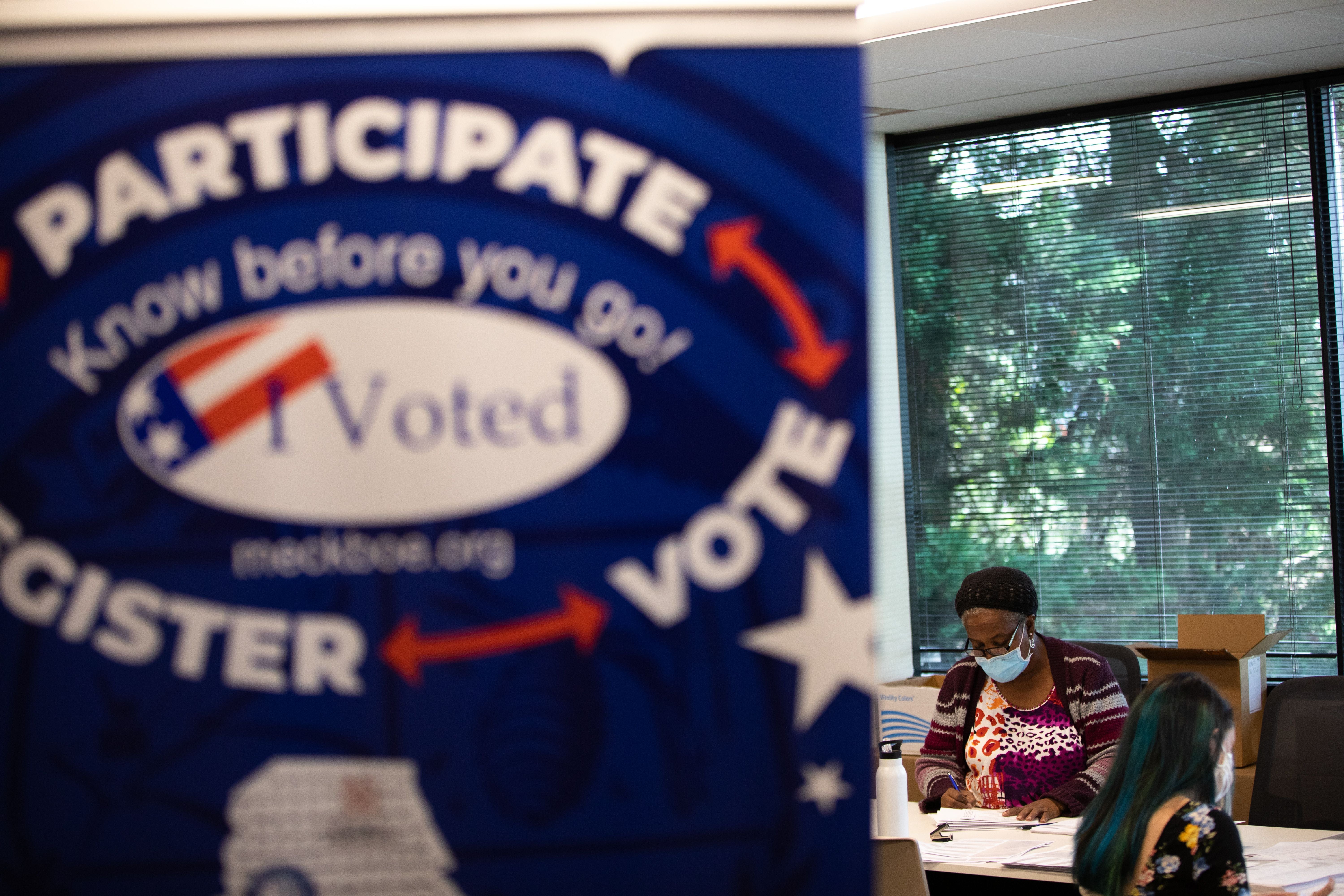One million Americans have already cast 2020 vote in ‘historic’ early voting surge
Surge is being driven by changes to state voting laws to make voting safer during pandemic

Your support helps us to tell the story
From reproductive rights to climate change to Big Tech, The Independent is on the ground when the story is developing. Whether it's investigating the financials of Elon Musk's pro-Trump PAC or producing our latest documentary, 'The A Word', which shines a light on the American women fighting for reproductive rights, we know how important it is to parse out the facts from the messaging.
At such a critical moment in US history, we need reporters on the ground. Your donation allows us to keep sending journalists to speak to both sides of the story.
The Independent is trusted by Americans across the entire political spectrum. And unlike many other quality news outlets, we choose not to lock Americans out of our reporting and analysis with paywalls. We believe quality journalism should be available to everyone, paid for by those who can afford it.
Your support makes all the difference.More than one million Americans have already voted in the 2020 presidential election, the highest number of votes cast at this period in the race in US history.
The unprecedented surge has been driven by new state laws designed to help people vote safely during the coronavirus pandemic, according to election observers, a clear sign that the crisis is changing the way people cast their ballots.
The figures also suggest higher than usual voter interest in one of the most divisive and polarised elections in generations.
“We’ve never seen so many people vote this far in advance of a presidential election before. We are in uncharted territory,” Michael McDonald, a political science professor at the University of Florida, told The Independent.
Mr McDonald noted only 9,525 people had voted by the same time in 2016, and described the shift as “historic”.
The record numbers come after many states changed their laws to make voting easier during the pandemic. This included the expansion of mail-in ballot measures and early in-person voting.
A total of 1,012,211 ballots have already been cast across 13 states, according to the most recent figures.
Virginia, which adopted a new law that allows early in-person voting, has seen the highest number of votes cast, at 287,000. North Carolina and Wisconsin follow closely behind, and 248,000 and 238,000 respectively.
“The offering [of early voting] is important. It wouldn’t be possible for people to vote if there weren’t voting options available to people at the moment. It it a supply and demand equation,” said Mr McDonald, an election expert who monitors early voting numbers posted by individual states.
But he added that voter interest is playing a role: “There is also clear a demand to vote early, where people are casting their ballots at the first opportunity.”
Still, the numbers do not give any indication as to who is winning the race. Democrats tend to vote early, and so are overrepresented in preliminary numbers. Republicans tend to turn out in higher numbers on election day.
The coronavirus pandemic had led to a dramatic increase in the number of people requesting mail-in ballots this year, as many look to stay home on election day.
According to a recent survey, more than one-third of Americans plan to vote by mail in November. Some 48 per cent of people who plan on voting for Joe Biden will do so by mail, and only 23 per cent for Mr Trump.
Donald Trump has repeatedly attacked the expansion of mail-in voting across the US, claiming without evidence that it is vulnerable to fraud. His campaign has sought to limit its use in key swing states of Pennsylvania and Wisconsin, while encouraging his own supporters to vote by mail in states where he is favoured, like North Carolina.


Join our commenting forum
Join thought-provoking conversations, follow other Independent readers and see their replies
Comments